
O momento ‘Que se vayan todos’ do Brasil
Read in English Quando a economia da Argentina entrou em colapso no fim de 2001, todo mundo tinha certeza absoluta de quem era a culpa. Distante, hermético e cada vez mais propenso a balbuciar as palavras em seus discursos públicos, o presidente Fernando de la Rua havia conseguido desordenar completamente as contas públicas do governo … Read more

Impeachment and Brazil’s ‘Que Se Vayan Todos’ Moment
Leia em Português When Argentina’s economy collapsed in late 2001, everybody was absolutely sure whose fault it was. Aloof, hermetic and increasingly prone to slurring his words in public, President Fernando de la Rúa had managed to trash the government’s fiscal accounts in just two years in power. Steakhouses and nightclubs were empty, unemployment was … Read more
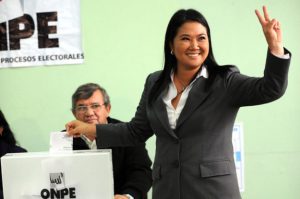
Peru Election: The Unlikely Political Endurance of the Fujimoris
Hillary Clinton is not the only former first lady running for president in the Americas. Keiko Fujimori, who served as first lady of Peru in the 1990s during the presidency of her divorced father, is the leading candidate heading into the South American nation’s election April 10. And as might be expected, the Fujimori family’s … Read more

Puerto Rico’s Diaspora Offers Its Best Chance for Change
Leer en español Feeling caught between two countries is always complicated. I think the experience was best summed up in the movie Selena when the title character’s father laments: “We have to be more Mexican than the Mexicans and more American than the Americans, both at the same time! It’s exhausting!” For those of us … Read more
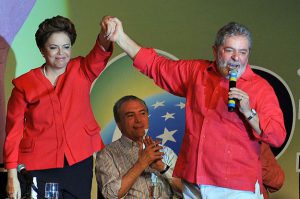
The Endgame of Brazil’s Crisis: Four Things to Watch
After one of the most eventful 24 hour periods in Brazilian history, the crisis threatening President Dilma Rousseff appears to have entered its endgame. For those trying to handicap the odds of her impeachment, or simply struggling to make sense of it all, here are four things to watch in coming days: 1. The … Read more

The Key to Rousseff’s Future – And Maybe Brazil’s, Too
After more than a decade studying Brazil, there are still two things whose popularity I cannot fully explain: bacalhau and the PMDB. The former is a vile salted codfish that no human being should ever be forced to ingest. The latter is the Brazilian Democratic Movement Party, a shape-shifting, ideologically diverse group of politicians that … Read more
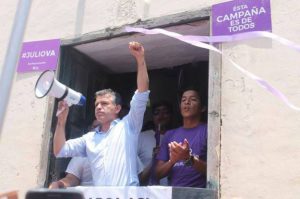
Peru Election Is ‘Scandalous,’ Says Barred Presidential Candidate
Julio Guzmán is running out of options. Barred from running for president in Peru’s April 10 elections on a technicality, Guzmán late on March 13 lost what appears to be a final legal appeal for his candidacy to be reinstated. A center-right technocrat who worked at the Inter-American Development Bank in Washington for 10 years, … Read more
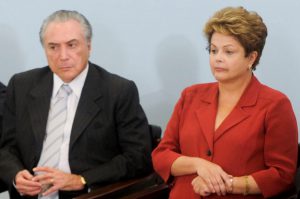
Brazil’s Impeachment: Who Are the Swing Voters in Congress, And What Do They Want?
Proceedings to oust Brazil’s President Dilma Rousseff have been underway for a week, and the battle lines are becoming clear. Rousseff appears to have enough support among the 28 parties in Congress to block impeachment over her alleged misuse of public funds. But that could change. Rousseff’s fate will ultimately rest in the hands of several … Read more
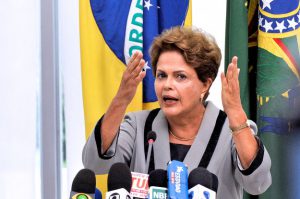
A Scenario Under Which Rousseff Gets Impeached in Brazil
In Brazil a few weeks ago, I asked a former official from Dilma Rousseff’s government whether his old boss would be impeached. “Forgive me for being politically incorrect,” he said, “but only if the poor take to the streets.” Ah, Brazil, where even in moments of high political drama, the class divide reigns supreme. But … Read more

Venezuela’s Media Isn’t Smearing the Opposition; It’s Making Them Invisible
With legislative elections on December 6 fast approaching and faith in President Nicolás Maduro’s government at an all-time low, Venezuela’s opposition senses an opportunity for a big win. Polls indicate a 15 to 30 point advantage for opposition candidates, which means that for the first time since the early 2000s the opposition has a real … Read more
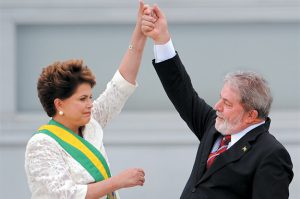
Goodbye to the Status Quo: Why Change Is Coming to South America
This article is adapted from the Fall 2015 print edition of Americas Quarterly. To subscribe, please click here I first met Dilma Rousseff in the hallway of a dingy hotel in Juiz de Fora in August 2010. She was in the homestretch of the presidential race and she, like Brazil, could seemingly do no wrong. … Read more
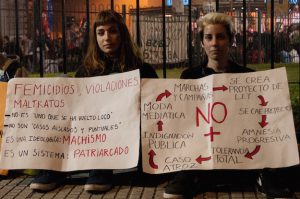
How Twitter Activism Made Violence Against Women a Campaign Issue in Argentina
Whoever wins Argentina’s presidential runoff on November 22, they will be expected to deal with the country’s staggering rates of gender violence. A femicide occurs in Argentina on average once every 30 hours. But it isn’t just the scope of the problem that has the candidates scurrying to suggest solutions. It is also thanks to the … Read more
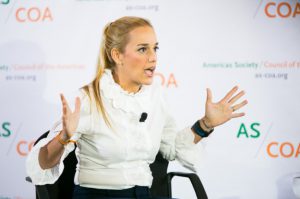
Leopoldo López’s Prison Treatment Amounts to Torture, His Wife Says
In September 2015, a Venezuelan judge sentenced opposition leader Leopoldo López to nearly 14 years in prison for his role in anti-government protests that swept the South American nation in early 2014. On October 1, AQ sat down with Lilian Tintori, a human rights activist and López’s wife, to talk about conditions in Venezuela, her … Read more
Despite Early Prison Releases, Venezuela’s Opposition is Still Under Pressure
Retired General Raúl Baduel, a former Venezuelan defense minister and vocal government critic, was granted an early release from prison this morning after serving six years of an eight year anti-corruption sentence. His release comes just 24 hours after Daniel Ceballos, an opposition leader and former mayor, was granted house arrest due to poor health stemming … Read more
Venezuelan opposition leader ends hunger strike after promise of elections
“Very soon, we will have a free and democratic Venezuela!” That was the promise from opposition leader Leopoldo López as he stood in front of thousands of supporters in the Chacaíto neighborhood of Caracas on February 18, 2014. With chants of “¡Si, se puede!” (Yes, we can!) echoing from the crowd and a Venezuelan flag in hand, López then turned himself over to authorities, pledging to stay in the country and carry … Read more


